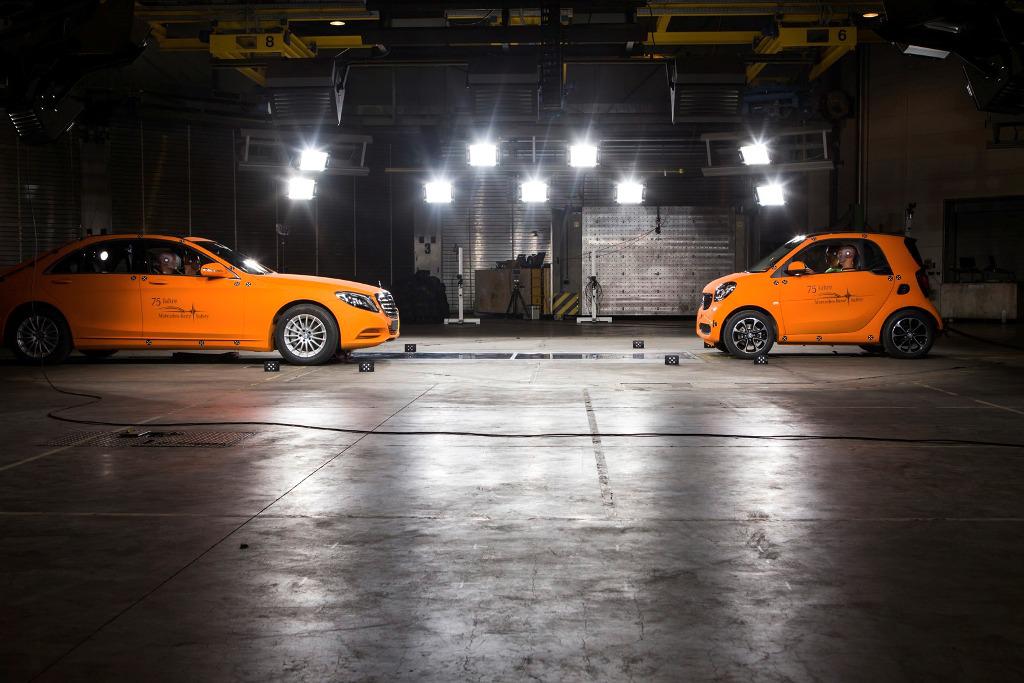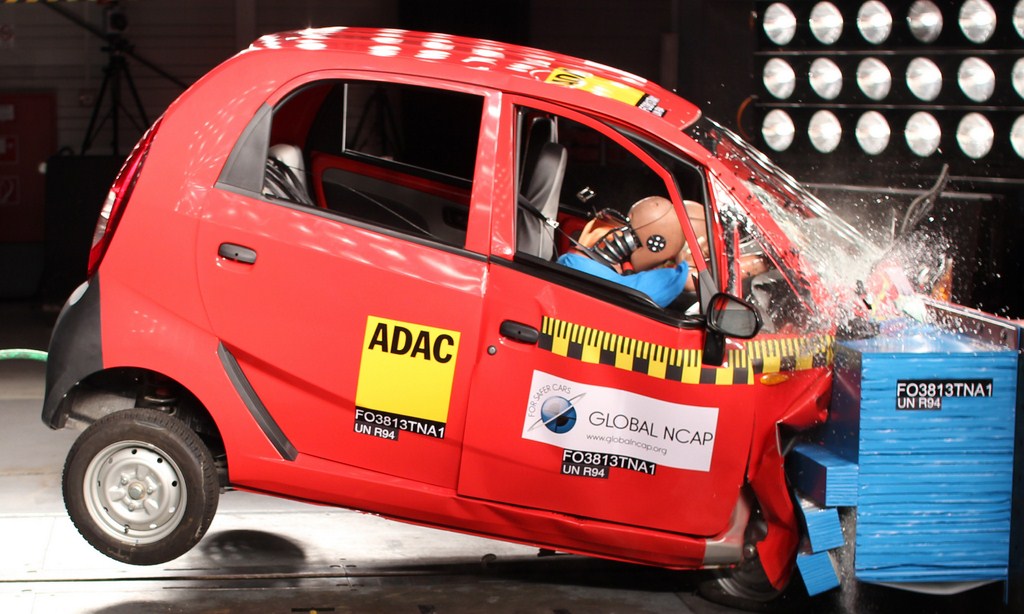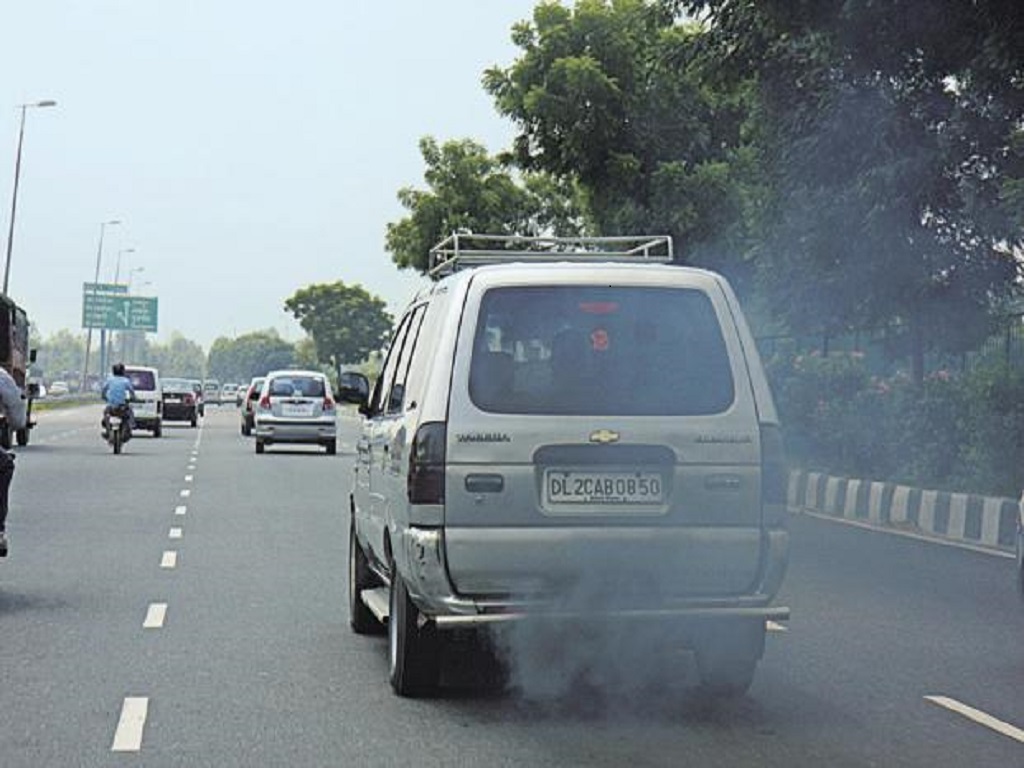ARAI has opened four new laboratories under the all-new homologation and tech centre at Chakan which will help the government in establishing new regulations for vehicles in the future.

The Automotive Research Association of India (ARAI) completes 50 years in 2016 and as part of the golden jubilee celebrations, the organisation opened a new Homologation and Technology Centre at Chakan, near Pune. The centre will offer services to automobile manufacturers for domestic as well as export markets and has been established under the National Automotive Testing and R&D Infrastructure Project (NATRiP) of the Indian government. Built with an investment of Rs. Rs. 270 crores from ARAI and Rs. 100 crores from NATRiP, the new facility comprises of four laboratories that offer the following services.
Passive Safety Laboratory – The lab has the capability to conduct crash tests in accordance with AIS, ECE, FMVS as well as NCAP rules and will provide homologation support for upcoming crash regulations and India’s upcoming safety rating system the Bharat New Vehicle Safety Assessment Programme (BNVSAP). The facility is equipped with an electric AC drive crash test system that can handle payloads of up to 3500 kgs and a propelling speed of 80 km/hr.
The lab can also conduct static rollover tests and has instrumented dummies (Hybrid III AM50, AM95, AF5, EuroSID-II, SID-IIs, Bio-RID-II as well as child dummies) as well as a dummy calibration unit. A 3D coordinate measurement machine is present to assess structural deformation while a high intensity lighting system for on-board and off-board high-speed photography is also present. ARAI is expected to fit 16 high-speed cameras with image analysis software soon.
Powertrain Laboratory – ARAI describes the lab as a centre of excellence and is setup under NATRiP for testing vehicles, engines, powertrains and other accessories with respect to power, efficiency and exhaust emissions, in compliance with Indian and global regulations. The 220 kW chassis dynamometer at the lab can conduct endurance tests of 2WD or 4WD vehicles, automatic refuelling system that can handle petrol and diesel as well as ethanol and methanol along with other alternatives including CNG and LPG.
Also present is advanced emission tests for vehicles with a GVW of up to 3.5 tonnes, a climatic chamber capable of replicating varying temperatures ranging from -30-degrees celsius to +55-degress celsius; a Vehicle Test Cell (VTC 1) that can handle domestic certification for BSIII, BSIV, BSV and BSVI emission norms and export homologation testing as per UNECE, EEC directives and US EPA and Japanese emission regulations.
Fatigue and Materials Laboratory – The lab conducts predictions of structural failures and evaluation of a vehicle’s structural components; systems and sub-systems as well as chassis/full vehicle subjected to real-life dynamic loading conditions. The facility is equipped with simulation facilities and assist medium and small scale enterprises in the development of components. The facility also aims to assist the auto industry in developing light-weight and eco-friendly vehicles.
Automotive Electronics Testing Laboratory – The facility comprises of state-of-the-art testing infrastructure for testing electric and hybrid electric vehicles and is currently being setup.
The event also saw announcements stating that seven specialised testing facilities are being developed under NATRiP across India which will be completed in the next two years. The government is investing around Rs. 3800 crores in the facilities accommodating the project cost overrun and will be located in Pune, Manesar, Ahmednagar, Chennai, Indore and Silchar. The role of these facilities will be assisting the government in the formation of regulatory norms for safety, emissions and fuels. Further, the Indian government plans to unify the same under an umbrella body called the ‘Automotive Regulatory Board’.





